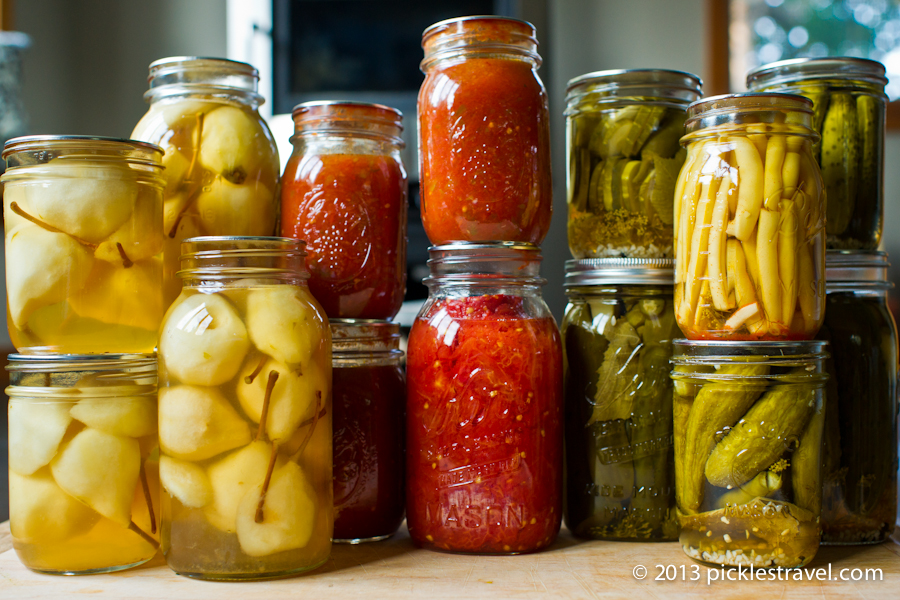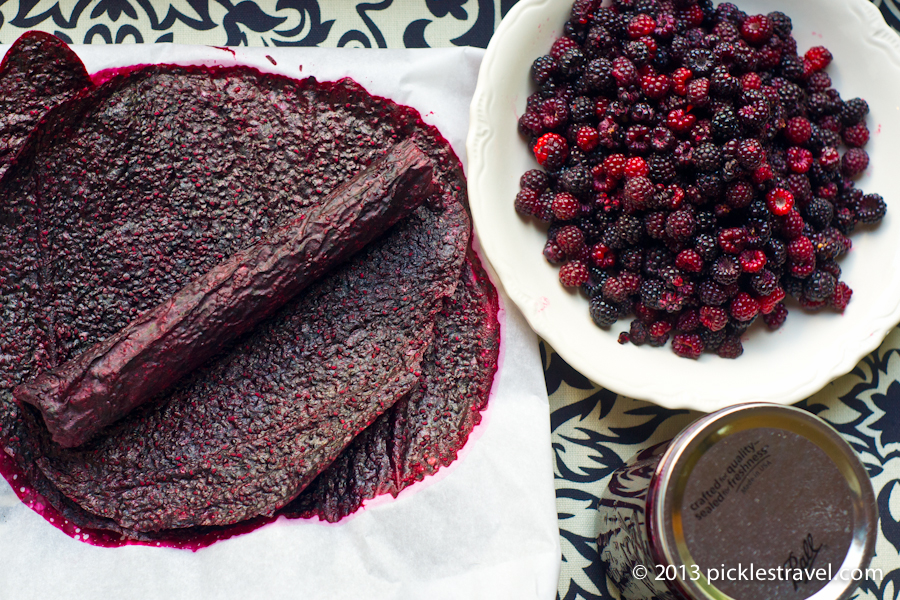Right now vegetables are ripening out of the garden faster than you can pick them, but in less than 2 months there will be next to nothing left.
So what should you be doing now to make sure you can enjoy them later?
Freezing, Canning, Pickling and Storing.
Invest the time in saving your fresh produce now and you’ll be grateful for it when the cold weather rolls in.
Pickling:
Most vegetables don’t have a high enough acidity level to be canned without a pressure canner. Pickling them takes care of this problem. I love pickling because it gives everything a wonderful vinegar flavor. If this is not for you then I would recommend freezing your veggies: beans, for example.
Freezing your vegetables, jams and meals is always a great way to save food. The only downside to freezing everything is that you’re limited by the size of your freezer. I can vegetables like tomatoes, but vegetables like corn and eggplant would need to be canned with a pressure canner, so I freeze them instead.
Drying:
Using the oven or a dehydrator is the fastest method for drying, though you can dry herbs easily (and attractively) without either, by hanging them upside down in a cool, dark place.
There are lots of options for drying: for fruit you can mash it up and dry in a layer as a fruit leather, or dry it whole to get the raisin affect.
Dry different types of vegetables to make chips; zucchini chips are always a favorite!
Potatoes, Onions, Garlic, Winter Squash, and Pumpkins can all be stored over the winter.
Store them in a dry, cool area.
Harvest them at peak ripeness; as they will last longer.
Check on your storage frequently – the worst thing for your food storage would be to have one rotten vegetable- which will quickly cause the others to go bad.
Planning for those late season crops; squash, apples, potatoes. This way you’ll be able to react quickly and save more when the time comes. For example; Apples can be stored or made into apple sauce. Having everything ready for when your garden is ready will save you time and energy!

